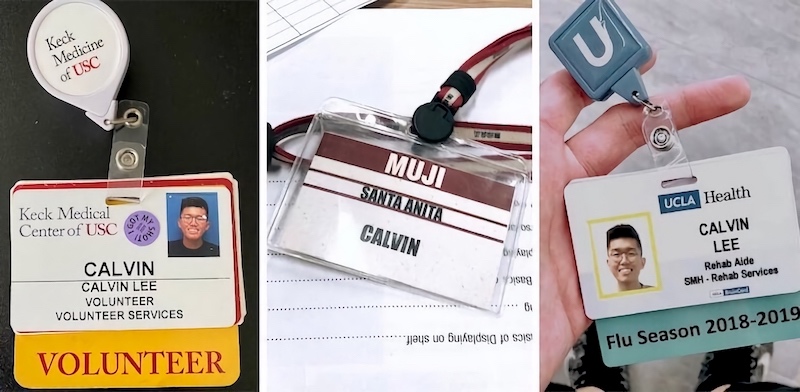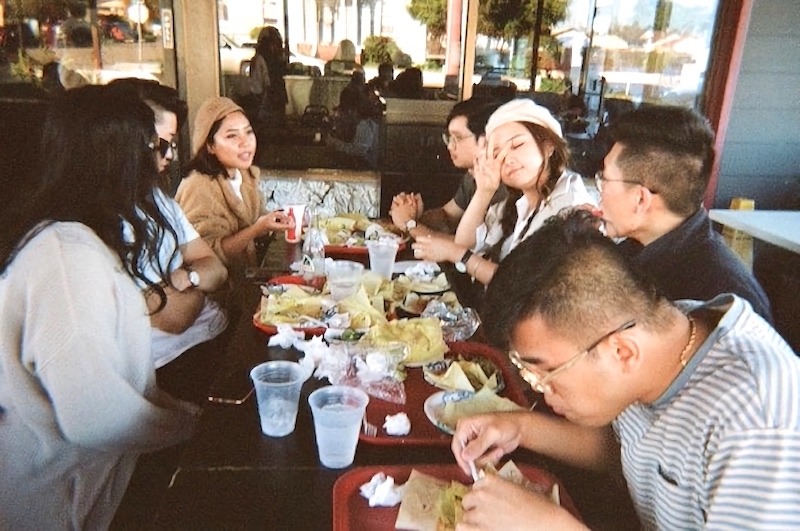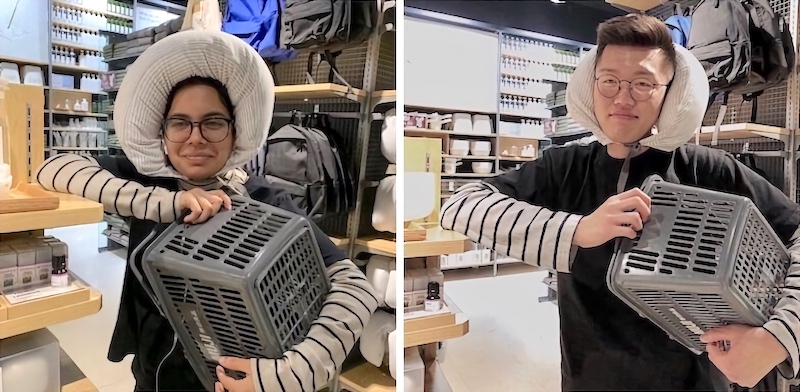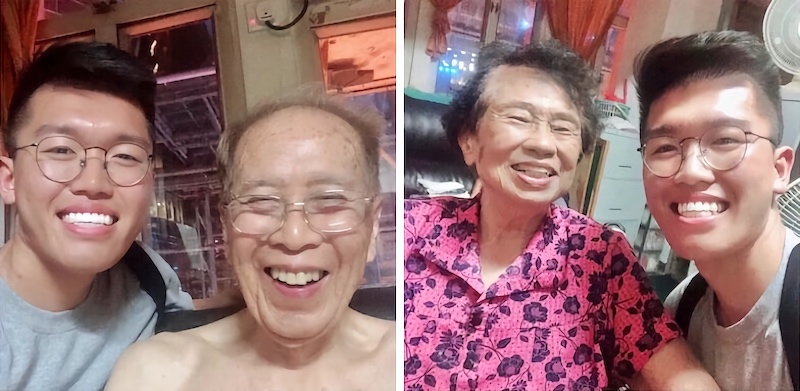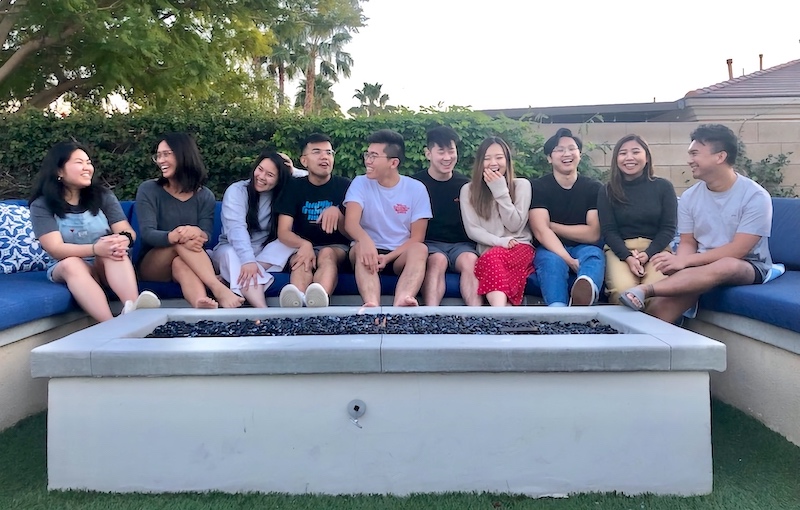Student Blog
Admissions

Why I Chose to Attend USC ⟩
February 17, 2021, by Savi
Admissions Classes Fieldwork Getting Involved Living in LA
During the past few weeks, a plethora of admitted and prospective students have reached out to get a student’s perspective on why we chose to complete our Master’s degree at USC. This simple question has made me reflect on all the wonderful reasons I have enjoyed my time in the program. I have decided to create a list of the reasons I chose to complete my Master’s degree at USC below. I hope this list helps admitted students reading with your decision during this overwhelming and exciting time! This list can also be a great resource for students deciding whether or not to apply to this program in the coming years.
- The USC community and connections: Going to USC immediately connects you to a very large group of OTs around the world. With around 130 OT students graduating from the Master’s program each year, the quantity of USC OT alumni is exuberant. This allows current USC students the opportunity to have resources and connections both within and outside the division. Whether you are looking to find a job after graduating or get advice about your career path, you have an extremely high chance of finding USC alumni in your field of choice. This can be really helpful since OTs can work in such a wide range of practice settings and it can get tricky deciding what path may be right for you. During your various fieldwork placements, you are also bound to run into or be mentored by USC alumni and it is great to make those connections with other trojans who understand the curriculum, program structure, etc.
- The faculty and resources: As a student, you get the opportunity to learn from some of the most amazing and world-renowned OTs. All of the faculty members have dedicated their lives to OT through clinical work, teaching, and research. These clinicians, researchers, and educators all have an open door policy and capitalize on any opportunity to chat with and get to know students. You can go to them for casual conversation, assistance with schoolwork, guidance in life and your career, and more. This team, along with all of the outstanding cutting-edge research being conducted within our division, gives us the unique opportunity to be some of the first to learn about the most up-and-coming techniques and discoveries. This environment encourages every student to challenge themselves, work hard, and become a leader in the OT field.
- The students: As mentioned before, USC admits around 130 students into their Master’s program. This larger class size has given me the opportunity to meet a plethora of different learners and future practitioners. After spending the first summer semester learning from all of these different perspectives in a larger class setting, everyone is split up into three different cohorts of about 40-50 students. The cohorts are small so you get to know everyone really well, but you also get the chance to socialize with the larger group of around 130 students outside of the classroom to learn about their experience in different practice immersions before you take them. The cohorts are further split into 2 groups to make lectures and labs even smaller. The two groups will switch off the order in which they attend lectures and labs, which allows for more individualized attention from the professors during class.
- Hands-on work: USC integrates fieldwork into each semester. As an extremely hands-on learner, I was really excited to discover that USC allows students to work at a fieldwork I site once a week during each practice immersion semester. We, therefore, get the chance to go into class three times a week and then apply what we learn in real-time with clients. We can come back each week and debrief with each other and our professors. By doing so, I didn’t feel like I was just a student sitting in class trying to absorb information. I really got the chance to take that knowledge and apply it every week. On top of that, we also are provided with the typical fieldwork II experience, in which we work as full-time OTs for 12-weeks during each summer in a setting of your choice. We have connections with over 950 fieldwork sites across the globe, so the opportunities to work in any field of your choice before graduating are endless. Students also have access to Keck Hospital of USC and USC Norris Cancer Hospital Occupational Therapy and the Faculty Practice, which is the birthplace of Lifestyle Redesign®. Students, therefore, have the opportunity to be mentored in a number of existing and developing practice areas at the outstanding USC hospitals and at the Faculty Practice in order to gain clinical experiences during their program of study.
- Los Angeles: Los Angeles is a city with endless OT opportunities. Whatever you may be passionate about in the OT realm . . . you can find it in LA. Outside of OT opportunities, LA is an amazing place to live. Anything you want to do, see, or eat is in this city. You can go hiking in the morning, sit on the beach in the afternoon, and grab a bite to eat in downtown all in one day! Comedy shows, outdoor adventures, etc. It is ALL here.
⋯
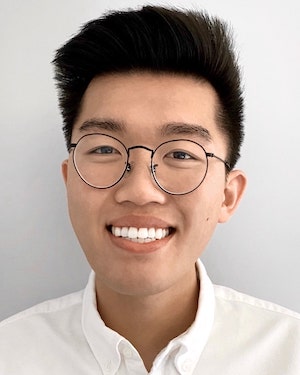
Dear Waitlist Applicants, ⟩
February 15, 2021, by Calvin
Admissions
How are you? I wanted to check in with you all to see how you’re doing. I know that being placed on the waitlist was probably not the ideal situation you were hoping to be in, but I want to commend you for making it this far. You’ve accomplished so much, from completing the entire application process to your experiences leading up to this moment. Congratulations and thank you for taking the time to apply to USC Chan, as well as for your dedication towards pursuing a career in occupational therapy.
I know that the waitlist entails a lot of uncertainty and that it’s not necessarily a yes or a no. However, although it is a very gray area, there is still a chance for you to be admitted off of the waitlist! Quite a number of my classmates were actually admitted off of the waitlist. The thing is that there’s the wait. The wait varies between each applicant and each application cycle. Along with other factors, it also depends on how much space is available to fill the incoming class. That’s the catch with the waitlist though — it’s very unpredictable and really, anything can happen at any time.
Some of you may have applied to USC Chan as your only option and others of you may have offers from other programs. I’ve been in very similar situations and can imagine that you might be feeling frustrated, disappointed, or even heartbroken. When I first applied, I was rejected with no option to be part of the waitlist. It was a devastating moment, but it gave me the opportunity to take a gap year and reapply the following year. I felt that it was a chance for me to show how much I grew from that experience and how ready I was to take on this new journey. Then, after reapplying, I was placed on the waitlist. Except this time I had other schools waiting to hear back from me about their offers, and I was just so conflicted. “Should I accept the offer from this other school, or should I keep waiting?” I decided to wait all the way until the start date of the program, and I’m very grateful that it ended up working out for me. However, it was incredibly difficult for me to wait that long, and I know that not everyone can afford that amount of time.
What I’m really trying to say is, I want to be real with you all because I’ve been through it and waitlist candidates hold a very special place in my heart. There may be a lot going through your mind right now, but know that your thoughts and feelings are valid. Know that you are all strong applicants and that you do have the potential to be amazing OTs. Although there is no guarantee that you will get off the waitlist, we are here for you and want to support you through this process. Please feel free to get in touch at .(JavaScript must be enabled to view this email address) and we would be more than happy to connect with you. Take good care!
⋯

Imposter Syndrome: Undergrad Edition ⟩
February 10, 2021, by Liz
Admissions Diversity
As I’ve mentioned before, one of the best parts of being a student ambassador is connecting with students—students that have been recently admitted, students interested in applying, and current students. Last night I had a video call with a recently admitted student, and they asked me something that really stood out to me. She asked me about imposter syndrome, but it wasn’t about how I related to it as a person of color. It was about how I felt when I was first admitted coming from Cal State Fullerton. Now, this person did not mean to make Cal State Fullerton sound inferior to other campuses and I certainly have nothing negative to say about CSUF at all. But, I thought it was a great question.
I remember being very proud and excited when I first received my acceptance letter to the program. But, as summer slowly approached, I started to worry about whether or not I would be just as “smart” or just as “prepared” as all of the other students in my class. I didn’t mean to doubt myself or feel as though I was competing with everyone else, but I just wanted to be good enough and feel like I deserved to be there.
On the first day of class, we all introduced ourselves. The faculty put together a PowerPoint that stated what our names were, our hometown, and the universities we attended. My last name begins with an R so you can only imagine how nervous I felt as they went through everyone leading up to my turn. As people walked up to introduce themselves, I saw UCLA, UC Berkley, San Diego State, UC Davis, USC, Chapman—all of these highly respected universities on people’s slides. And again, I don’t mean to say CSUF is any less than these institutions, but the schools on those slides definitely come with a reputation of being some of the best. It took some time for me to feel confident and know that I was just as good a student as everyone who came from these other highly respected schools. I have to say that everyone in my classes has had amazing ideas and thoughts to share these past two years—people from divrse backgrounds who’ve attended different universities.
That’s the point I hope to get across with this post. It’s completely normal to feel nervous and scared that you may not be as good as everyone else around you in class. I’m sure everyone that gets admitted feels this in some way! But, I want you to know that you deserve to be here and there’s a reason you were admitted and it’s because the admissions team saw something in you that made them believe you would be a great OT. That’s the great thing about the holistic admissions process. There’s bright people on every campus and we want people with different backgrounds to share their experiences in the classroom. I also thought this was something that students who are currently at community colleges could relate to as well. Continue to push yourself and work towards getting that bachelor’s degree in order to one day apply for OT school!
At the end of the day, we’re all working towards being occupational therapists. You’ll get a chance to develop your clinical reasoning skills and discover your therapeutic use of self along the rest of your peers. We’re all on this journey together. So, congratulations to all those students who just recently got admitted into our program. Take some time to celebrate all of the hard work you did to get here. And if you’re still preparing to apply or try again, you also got this! As always, feel free to shoot me an email if you would like to chat more about this or anything at all. Fight on!
⋯
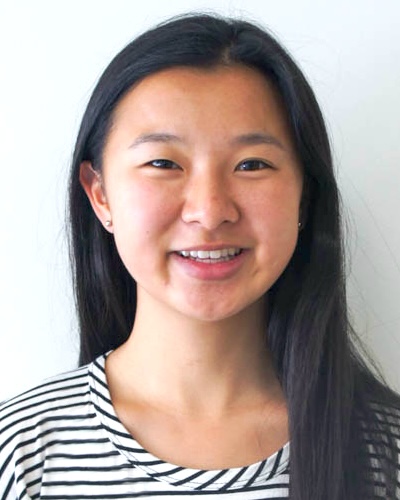
Welcome to the Waiting ⟩
February 3, 2021, by Bethany
Admissions Life Hacks
Hello to all of our undergraduate applicants who have now reached the Waiting: that awkward time in between application submission and decision where the choice is out of your hands. All admissions processes, whether for undergrad or graduate school, have that awkward, breath-holding Waiting. You’ve spent months trying to paint the perfect picture of yourself for each counselor that reads your personal statement. You’ve looked at schools and maybe you have that one ideal school in mind. You’ve hit the submit button. And now what? Whatever thoughts or expectations we have about our future education, we all at some point get stuck in the Waiting. So as you’re sitting trying to picture what the next four years of your life may look like, here are a few tips to remember.
- Breathe — With applications in, breathe in. Now, breathe out. You did it! You submitted! Good job! You’ve done your part, and now look at all this new time that you have gained! Take a breath and bake cookies or go for a night drive. Go back to your favorite activities, or find a new one. Or you can always spend more time studying for all those AP classes that you decided to take senior year . . .
- Celebrate — You have done your best, written your best, and put on your best show. Take time to eat some ice cream, since it’s hitting 80 degrees here in LA, or drink hot chocolate and watch a movie.
- Commiserate — Remember that other students are also waiting! Find your other friends who are in the same boat. Wait together, and rant together, if you need to. Remember that wherever you are in this journey, you’re not alone.
- Ask — If you still have questions about the college experience, use the time to reach out! Email me at .(JavaScript must be enabled to view this email address) if you want to ask me questions about OT undergrad life. Take an undergraduate virtual tour. Stay updated on the undergraduate Admission Blog to learn more about the “Now what?”
- Be present — The phrase “be present” is used frequently among my friend group. But it always takes a moment for the real meaning of the phrase to sink in. As you go throughout your day, be present in the moment. Yes, you can think about your future, but don’t let those worries take away from what you’re living right now. Make some good memories. Now is as good a time as any.
So. Welcome to the Waiting. Just remember, the Waiting doesn’t last forever. Your path may end up looking different than you expected. But know that somehow, someway, you’ll end up where you need to be.
⋯

#NoRegrets ⟩
December 28, 2020, by Calvin
Admissions Getting Involved International Life Hacks Living in LA
Since OT school wasn’t an option for me right out of undergrad, I thought, “Well, I guess it’s time for plan B: to take a gap year.” Except, as time went by, it started to feel less like a back-up plan and more like the decision I should’ve gone with all along!
My gap year happened pretty unintentionally, but I’m honestly so glad that I took that time off. After 4 years of undergrad, I felt burnt out! A change of pace was something I needed and taking a year off to rest and try new things ended up serving me really well. It was because of my gap year that I was able to pursue research in another country, visit family and friends back in Hong Kong, travel around the world, build my professional experiences, study for the GRE, and just overall, take a break from school! Even though I wasn’t on vacation 24/7, my schedule definitely allowed for a lot more flexibility. I also want to emphasize that taking time off before heading to graduate school is completely normal. I might even suggest it because it gave me the time to reflect, mature, and refocus my goals.
I know what it’s like to feel the pressure of securing something for yourself after undergrad. I also know what it’s like when that doesn’t work out. Not knowing what’s going to happen next is a scary thing, but it’s also an opportunity to challenge ourselves and grow in ways that we might not have imagined before. So, do what you need to do before starting grad school, and know that you don’t need to jump into it right away. Take the time to think about what’s best for you and your future.
My Gap Year Memories in Photos
⋯






